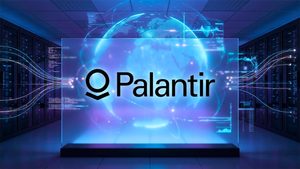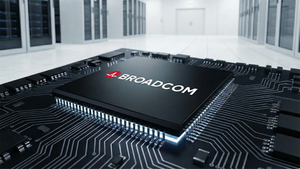- Findings from NCI-led study suggest that Memory Cytokine-Enriched Natural Killer cells (M-ceNK) may provide benefit to patients with small cell lung cancer and patients with other types of neuroendocrine tumors
- M-ceNK may provide an additional line of therapy in other cases of immunologically cold tumors lacking MHC expression after a checkpoint blockade therapy
- The first-in-class M-ceNK cells use the patient’s own NK cells, which have been enriched with cytokines including ImmunityBio’s IL-15 superagonist N-803, to recognize and kill cancer targets with longer persistence
ImmunityBio, Inc. (NASDAQ: IBRX), a clinical-stage immunotherapy company, today announced new data showing that the company’s Memory Cytokine-Enriched Natural Killer cells (M-ceNK) may provide benefit to patients with small cell lung cancer and patients with other types of neuroendocrine tumors. Findings from the study titled “Characterization of the anti-tumor activity of memory cytokine enriched NK cells (M-ceNK) against tumors with neuroendocrine features” were presented by Kristen Fousek, Ph.D., Research Fellow with the Center for Immuno-Oncology of the National Institutes of Health’s National Cancer Institute (NCI) in a poster session (Abstract #358) at the annual meeting of the Society for Immunotherapy of Cancer (SITC) in San Diego, November 4, 2023.
Small cell lung cancer (SCLC) is an aggressive neuroendocrine (NE) carcinoma and has few treatment options. Although immune checkpoint blockade (ICB) is approved in combination with chemotherapy in extensive stage disease, only a subset of patients experience an improvement in overall survival. Studies suggest that a lack of response to ICB is partially attributable to low expression of MHC-class I. Recently, an NCI research group (Fousek et al., 2023) reported that the lack of MHC-class I can be leveraged to enable targeting by NK cells stimulated with ImmunityBio’s IL-15 cytokine superagonist N-803. These findings led researchers to hypothesize that M-ceNK cells may be effective in targeting SCLC.
In the new study, the killing capacity of M-ceNK cells was assessed in four SCLC cell lines representing the major molecular subtypes. M-ceNK cells, generated from cells from several healthy donors, were found to express high levels of activating receptors and low levels of inhibitory receptors, as well as elevated IFN-γ and granzyme B production – all of which are important for anti-tumor activity. The M-ceNK cells were highly cytotoxic against all types of SCLC models, as well as against prostate neuroendocrine cancer. Overall, the study revealed the potential for M-ceNK-based approaches for the treatment of NE tumors, including all molecular subtypes of SCLC and supports future studies in other tumor types that are unresponsive to ICB.
“These results are further evidence of the potential of M-ceNK therapy as a new immunotherapy approach for treating cancers that do not respond to immune checkpoint blockade, the current standard of care,” said Patrick Soon-Shiong, M.D., Executive Chairman and Global Chief Scientific and Medical Officer at ImmunityBio. “We are encouraged by the data coming out of this study and we look forward to assessing the potential for M-ceNK therapy in other tumor types.”
About M-ceNK
Memory-like cytokine-enhanced natural killer (M-ceNK cells are a unique set of white blood cells (lymphocytes) that are first collected from individual patients (autologous cells) then differentiated into the specialized NK cells with enhanced anti-cancer function by brief pre-activation with interleukin-12 (IL-12), IL-15, and IL-18. These cells are characterized by their unique cell-surface marker profile and enhanced responses to cytokine re-stimulation that include increased IFN-γ production and cytotoxicity against leukemic cell lines. They are called ‘memory-like’ due to their highly desirable feature of immune-memory, reflected by their persistence and pronounced anti-cancer activity observed in clinical studies for weeks to months in duration (reviewed in Berrien-Elliott et al., 2023). Through the application of ImmunityBio’s proprietary GMP-in-a-Box bioreactors and cytokines, the company has not only developed a new method that yields multiple doses from a single lymphocyte collection, but also a method to generate M-ceNK cells from cord blood (allogeneic) so that collection from the patient may not be necessary. The company has also found that the efficacy of M-ceNK cells can be further amplified by the IL-15 superagonist N-803. Because the generated M-ceNK cells are stored using our optimized cryopreservation protocol, they have maximum shelf-life and potency upon recovery, a necessity for any off-the-shelf product.
The safety and preliminary efficacy of M-ceNK cells in locally advanced or metastatic solid tumors are currently being assessed in the Phase 1 clinical trial, QUILT-3.076, which is actively enrolling patients at this time (NCT04898543).
M-ceNK cells and N-803 are investigational. Safety and efficacy of these investigational agents have not been established by any Health Authority or Agency, including the FDA.
About ImmunityBio
ImmunityBio is a vertically-integrated, clinical-stage biotechnology company developing next-generation therapies and vaccines that bolster the natural immune system to defeat cancers and infectious diseases. The company’s range of immunotherapy and cell therapy platforms, alone and together, act to drive and sustain an immune response with the goal of creating durable and safe protection against disease. We are applying our science and platforms to treating cancers, including the development of potential cancer vaccines, as well as developing immunotherapies and cell therapies that we believe sharply reduce or eliminate the need for standard high-dose chemotherapy. These platforms and their associated product candidates are designed to be more effective, accessible, and easily administered than current standards of care in oncology and infectious diseases.
For more information, please visit: www.immunitybio.com
Forward Looking Statements
This press release contains forward-looking statements within the meaning of the Private Securities Litigation Reform Act of 1995, such as statements regarding the development of therapeutics for SCLC and other indications, study results and potential implications therefrom, potential benefits to patients, potential additional studies and trials, methods, regulatory pathways and ImmunityBio’s investigational agents as compared to existing treatment options, among others. Statements in this press release that are not statements of historical fact are considered forward-looking statements, which are usually identified by the use of words such as “anticipates,” “believes,” “continues,” “goal,” “could,” “estimates,” “scheduled,” “expects,” “intends,” “may,” “plans,” “potential,” “predicts,” “indicate,” “projects,” “seeks,” “should,” “will,” “strategy,” and variations of such words or similar expressions. Statements of past performance, efforts, or results of our preclinical and clinical trials, about which inferences or assumptions may be made, can also be forward-looking statements and are not indicative of future performance or results. Forward-looking statements are neither forecasts, promises nor guarantees, and are based on the current beliefs of ImmunityBio’s management as well as assumptions made by and information currently available to ImmunityBio. Such information may be limited or incomplete, and ImmunityBio’s statements should not be read to indicate that it has conducted a thorough inquiry into, or review of, all potentially available relevant information. Such statements reflect the current views of ImmunityBio with respect to future events and are subject to known and unknown risks, including business, regulatory, economic and competitive risks, uncertainties, contingencies and assumptions about ImmunityBio, including, without limitation, (i) the risks and uncertainties associated with the regulatory review process, (ii) the ability of ImmunityBio and its third party contract manufacturing organizations to adequately address the issues raised in the FDA’s complete response letter, (iii) the ability of ImmunityBio to continue its planned preclinical and clinical development of its development programs, and the timing and success of any such continued preclinical and clinical development and planned regulatory submissions, (iv) ImmunityBio’s ability to retain and hire key personnel, (v) ImmunityBio’s ability to obtain additional financing to fund its operations and complete the development and commercialization of its various product candidates, (vi) ImmunityBio’s ability to successfully commercialize its product candidates and uncertainties around regulatory reviews and approvals, (vii) ImmunityBio’s ability to scale its manufacturing and commercial supply operations for its product candidates and future approved products, and (viii) ImmunityBio’s ability to obtain, maintain, protect and enforce patent protection and other proprietary rights for its product candidates and technologies. More details about these and other risks that may impact ImmunityBio’s business are described under the heading “Risk Factors” in the Company’s Form 10-K filed with the U.S. Securities and Exchange Commission (“SEC”) on March 1, 2023 and the Company’s Form 10-Q filed with the SEC on August 8, 2023, and in subsequent filings made by ImmunityBio with the SEC, which are available on the SEC’s website at www.sec.gov. ImmunityBio cautions you not to place undue reliance on any forward-looking statements, which speak only as of the date hereof. ImmunityBio does not undertake any duty to update any forward-looking statement or other information in this press release, except to the extent required by law.
View source version on businesswire.com: https://www.businesswire.com/news/home/20231107571659/en/
Contacts
Investors
Hemanth Ramaprakash, PhD, MBA
ImmunityBio, Inc.
+1 858-746-9289
Hemanth.Ramaprakash@ImmunityBio.com
Media
Greg Tenor
Salutem
+1 717-919-6794
Gregory.Tenor@Salutem.com






